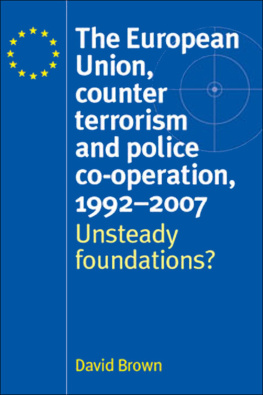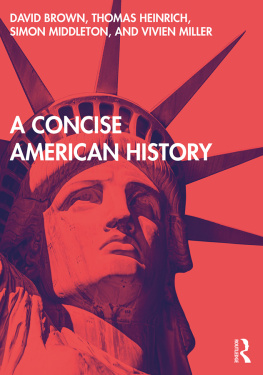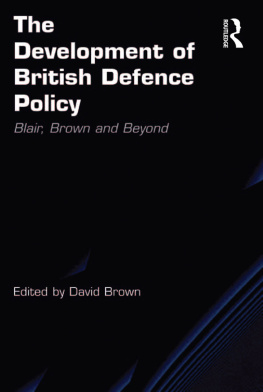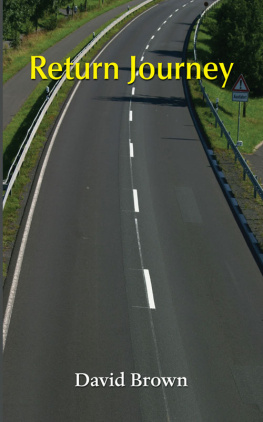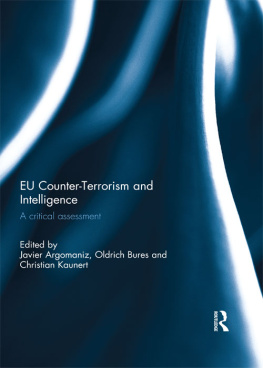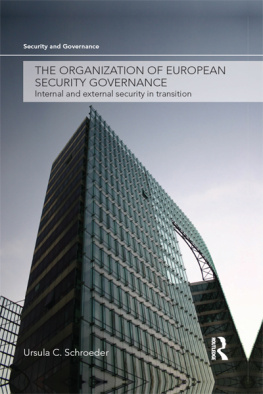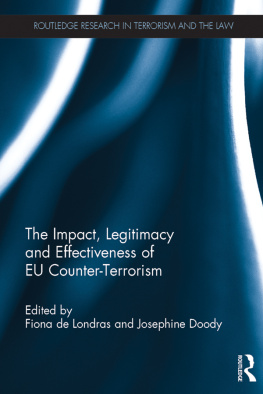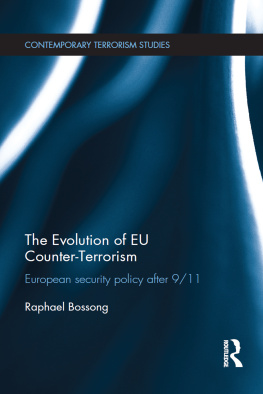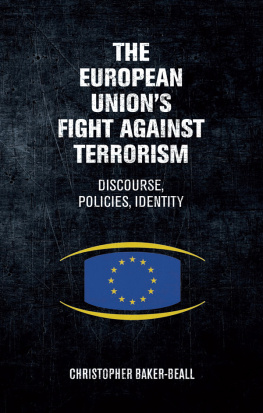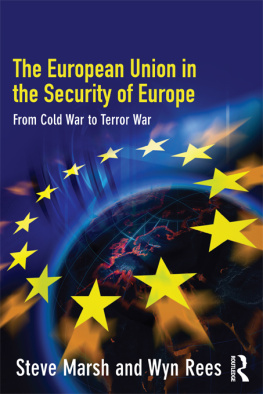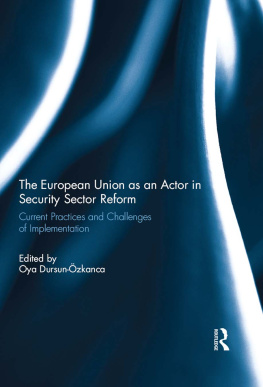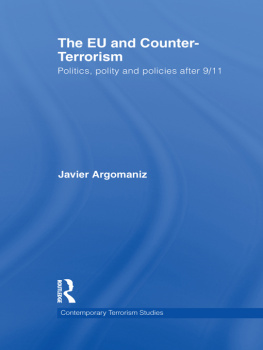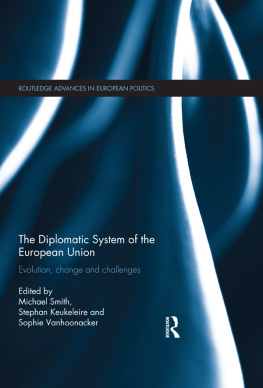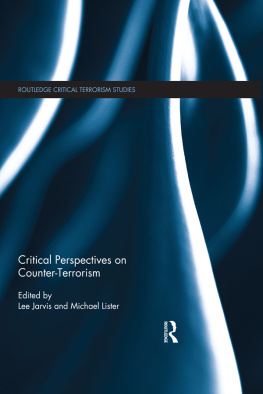The European Union, counter terrorism and police co-operation, 19922007
To my granda, Tom Slater, a legend in his own living room
The European Union, counter terrorism and police co-operation, 19922007
Unsteady foundations?
David Brown
Copyright David Brown 2010
The right of David Brown to be identified as the author of this work has been asserted by him in accordance with the Copyright, Designs and Patents Act 1988.
Published by Manchester University Press
Oxford Road, Manchester M13 9NR, UK
and Room 400, 175 Fifth Avenue, New York, NY 10010, USA
www.manchesteruniversitypress.co.uk
Distributed in the United States exclusively by
Palgrave Macmillan, 175 Fifth Avenue, New York,
NY 10010, USA
Distributed in Canada exclusively by
UBC Press, University of British Columbia, 2029 West Mall,
Vancouver, BC, Canada V6T 1Z2
British Library Cataloguing-in-Publication Data
A catalogue record for this book is available from the British Library
Library of Congress Cataloging-in-Publication Data applied for
ISBN 978 0 7190 7464 6
First published 2010
The publisher has no responsibility for the persistence or accuracy of URLs for any external or third-party internet websites referred to in this book, and does not guarantee that any content on such websites is, or will remain, accurate or appropriate.
Typeset
by Frances Hackeson Freelance Publishing Services
Printed in Great Britain
by CPI Antony Rowe Ltd, Chippenham, Wiltshire
Contents
Tables
Abbreviations
ACPO | Association of Chief Police Officers |
AFSJ | Area of Freedom, Security and Justice |
AIVD | Algemene Inlichtingen-en Veiligheidsdienst |
ATCSA | Anti Terrorism Crime and Security Act |
AWAC | Airborne Warning and Control System |
AWF | Analysis Work File |
BKA | Bundeskriminalamt |
CAP | Common Agricultural Policy |
CCP | Common Commercial Policy |
CFSP | Common Foreign and Security Policy |
COREPER | Committee of Permanent Representatives |
CTP | Common Transport Policy |
CEEC | Central and East European Countries |
CIS | Customs Information System |
CTTF | Counter Terrorism Task-Force |
DRC | Democratic Republic of the Congo |
EAW | European Arrest Warrant |
ECJ | European Court of Justice |
ECST | European Convention for the Suppression of Terrorism |
EDU | Europol Drugs Unit |
EIS | Europol Information System |
EPP | European Public Prosecutor |
ERRF | European Rapid Reaction Force |
ESDP | European Security and Defence Policy |
ETA | Euskadi Ta Askatasuna |
EUCPN | European Union Crime Prevention Network |
ICVS | International Crime Victim Survey |
IGC | Inter-Governmental Conference |
ISAF | International Security Assistance Force |
JHA | Justice and Home Affairs |
JIT | Joint Investigation Team |
MLA | Mutual Legal Assistance |
NATO | North Atlantic Treaty Organisation |
NCIS | National Criminal Intelligence Service |
OCTA | Organised Crime Threat Assessment |
PHARE | Pologne, Hongrie Assistance la Reconstruction Economique |
PIRA | Provisional Irish Republican Army |
PKK | Partiya Karkern Kurdistan |
PTA | Prevention of Terrorism Act |
PWGOT | Police Working Group on Terrorism |
QMV | Qualified Majority Voting |
SAPARD | Special Accession Programme for Agriculture and Rural Development |
SEA | Single European Act |
SIM | Single Internal Market |
SIS | Schengen Information System |
TEU | Treaty on European Union |
TREVI | Terrorism, Radicalism, Extremism, Violence International |
WMD | Weapons of Mass Destruction |
Acknowledgements
There are a number of people who need to be thanked, who have offered their time and valuable comments at various stages of this project, including Jorg Monar, Derek Urwin, Martin A. Smith, Donette Murray, Alistair J. K. Shepherd, Gerhard Mangott and Franz Eder. Particular thanks goes to Trevor Salmon, whose patience, wisdom and sound advice helped get this project off the ground. In addition, both him and his wife, June, made Aberdeen a warmer place to be during the initial research for this volume. This work is wholly the authors own, and the views expressed do not represent the views of the British Army, the Ministry of Defence or the wider UK government.
1
Introduction
On 11 September 2001, terrorism was seared into the global consciousness, as the world watched live the horrific images of hijacked planes being crashed into the World Trade Center and the Pentagon. In the years that followed, Al Qaeda and Osama bin Laden have become household names, dominating the airwaves and making full use of what Margaret Thatcher once called the oxygen of publicity. Newspapers carry stories of bombings with regrettable regularity, interspersed with news of failed plots, terrorist trials or the speeches of hate from the self-appointed spokespersons of militant Islam. In effect, terrorism has become a central feature of modern life for much of the international community.
Some commentators have seen the events of 11 September 2001 as marking a watershed in international relations, bringing the first period of the post-Cold War era to an end and marking a new vulnerability on the part of the worlds only superpower, the United States. Having been hampered in his opening years in office by his own innate conservatism and the creative partnership with his Chancellor of the Exchequer, Blairs diplomatic activity in the wake of the terrorist attacks and the UKs subsequent military involvement in both the invasions of Afghanistan and more controversially Iraq significantly altered the course of his premiership.

